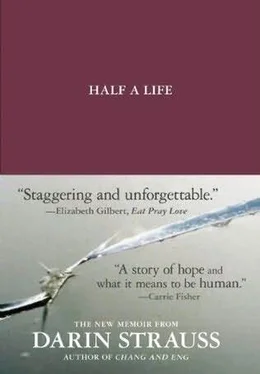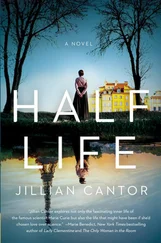Through all this, there was the courthouse threat of financial devastation — a thief taking up ominous position outside every job, every apartment, rubbing his hands together. Everything could at any moment be taken away because of the Zilkes, snatched from under me, desks pulled from my fingers. Her parents had found a very real way, I realized, to keep Celine with me forever.
During the gulp and wait of litigation, my distress sprouted a few surprising offshoots. I found the idea of people mistakenly thinking ill of me impossible to take. (This misunderstanding-phobia went even for your standard sitcom mix-up: if Diane incorrectly thought Sam did something wrong, I couldn’t bear it and often left the room.)
The accident had also turned me squishily obliging. I always cozied up to people — so that if they ever learned the story, they’d say: “He seems so decent and kind. How awful that such a thing would happen to him!”
I never really got to know my insurance attorney; I watched him grow older at wide intervals, like a frame-advance special effect. The case seemed to have stalled. He was now in his late thirties, when time begins to do heavier work on you. I was living in that jittery meantime where an accused can almost mistake bureaucracy for reprieve, where it’s possible to hope officials have simply misplaced the proper forms, let their attention wander, have clean forgotten. I kept this hope going. And then one evening it shattered against the blunt force of a lawyer’s phone call.
But before I get into that, I should explain in greater specificity how the trial had actually started.
In May or June 1988, right after the crash, my insurer — more or less satisfied that no jury was likely to find me negligent — had followed an industry-wide policy of offering “the deceased’s family” what insurers (charmingly) call “go-away money.” In fatality accidents, this is the minimum a company will release: a careful figure above what it believes a plaintiff might be likely to gain in court, but below the hassle threshold of an actual trial. The go-away idea operates on a just-in-case basis. “Like a hedge against a jury verdict,” the lawyer told me: no matter how airtight the defense’s proof, no jury’s ruling can ever be predicted with utter confidence.
My insurance company put the Zilkes’ go-away figure at $20,000. That way they (and I) would avoid the “crapshoot” of a trial.
“Wait,” I said, “ what ?” How does a case go from airtight to crapshoot? The lawyer said, Well, you know.
In front of twelve angry peers, a crying mother sometimes can turn opinion against any defendant. (I sometimes wondered if it was the gaucheness of the amount — why $20,000?—that had activated the Zilkes. I wish I could have asked them.)
It was only when they’d been offered this figure that the Zilkes — maybe wondering if they could get more — had hired a lawyer of their own. And, of course, their new lawyer had said: Yes, you’re looking at capital-M millions. (It had been Mrs. Zilke who’d hired the attorney to go after me for a fortune. At least, this is what I got from Mr. Zilke as we’d exchanged a few uptight words at one of the depositions. His offering me that information felt, in effect, like another glass of iced tea.)
And so they had arrived at their decision to sue. And according to my lawyer, to open the possibility that they could impoverish me forever by winning a larger sum than what my insurance policy would cover. I told myself that they had done it without my silly ambivalence. If they were successful, they would ruin the life of the kid they’d promised never to blame, never to target.
Almost exactly five years after the accident, I was visiting my parents when my insurance lawyer called. “Check into a hotel,” he told me. “Have your friend David check into a hotel, too. Did anyone brief you from my office why I’m calling?”
“No,” I said. “ Brief me? Wait, is something big happening?” All the fears that were always whispering in the back of my mind rushed screaming to the front. Look right, Look left.
“Okay, I think in the next few hours you’re going to be served with a summons,” the lawyer said. “But this way, they can’t.”
I didn’t understand the legal maneuverings, the reason for a summons in a civil trial (and still don’t). But it didn’t really matter what I understood: We were going to court immediately.
Couldn’t they just call it off, though? My appearing on the stand, the mother crying and accusing and hating me to my face, all that?
“I hear you,” the lawyer said. “ But . And hey, we’re paying for the hotel. No, I don’t think we can stop it. We want to go to trial. It’s a pretty definite win. Their attorney’s a jerk, besides. We won’t even need to give them go-away money. Take a night. We have eyewitnesses, the cops. At trial, the evidence is with us. And when you have all that .”
I learned that even indoors, even on a cool night, one could sweat so much that a phone can go slick in one’s grip. It was hard not to imagine Mrs. Zilke on the stand, storms crossing her face. And then, on seeing me, her eyes would show the release, the godsend, that blame can be. I asked the lawyer to please not make me go through with it. I could feel the word trial echoing in my stomach.
“These things take on a momentum,” the lawyer was saying. “Look, how’s there any meeting anybody halfway with this? The family wants the millions they want, we’re not budging above twenty thousand, which leaves a lot of ground in between. Take a night. Have room service.”
I took that to mean I would be going on the stand.
I couldn’t stop picturing Mrs. Zilke: her face going cold at the sight of me, puzzled by the obstinate fact of my continuing existence. And every time she would lift her eyes to stare me down, she’d see the person who’d survived her daughter in the one contest that made possible any other.
“We’re flexible,” the lawyer said, “but we aren’t that flexible, where we won’t fight if we can save this much money. So.”
That, I was sure, settled it. The moment felt so decisive: stirring, certain, a thunderbolt. I laid out plans to go to a hotel.
The top, social level of who I was shrank from trial possibilities. Still, there were deeper, muckier layers. These parts of me didn’t mind confrontation; these parts of me felt relief that it would at least now be over. My innocence (or my guilt) would have the official stamp of the U.S. court system. Again, I was mostly terrified. But something in me — the same tiny something that had longed for Melanie Urquhart’s anger — craved, finally, a decision from twelve people. They’d hear witnesses, cops, statistics, the journal entry. It would no longer be just my daily fluctuating opinion. The official world would have to listen, nod, and answer the question of that highway and that day. A government-sanctioned conclusion: you are culpable; you are blameless. This could bring ruin as easily as release. But the one sure thing it would bring was an end.
And yet.
With what seemed a shiver of disgust, the proceedings came to an immediate close.
Just hours before the trial was to begin, the Zilkes’ lawyer suddenly advised his clients to take the go-away money, the original $20,000. (Minus his thirty-percent cut.) He didn’t want to go to trial. And, like that, it was over. This is the missed beat at the heart of the story.
For years, as I continued to feel sorry for the Zilkes, I could measure time by calculating how much money they might have earned if they’d tucked away the original twenty grand with interest in some bank.
After everyone had dusted themselves off, had shaken hands and shut off the lights, after taxes, after years , the Zilkes by my calculations got something like $9,800 for what had happened to Celine and to me.
Читать дальше









